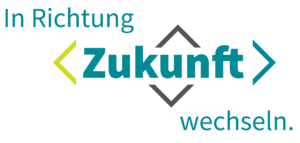
Youth Custody Conference: The RESCALED Model
📅 Date: Thursday, May 22, 2025
📍 Location: Tribühne Lehen, Tulpenstraße 1, 5020 Salzburg, Austria
⏰ Time: 9:00 AM – 5:00 PM
🎫 Purchase tickets here
Event Overview
On May 22, 2025, we are hosting an international youth detention conference in Salzburg, Austria, in collaboration with the Kinder- und Jugendanwaltschaft Salzburg (Children and Youth Advocacy, Kija) and RESCALED, the European movement for detention houses.
The conference will focus on the RESCALED model, which advocates for small-scale, differentiated, and community-integrated detention houses. We will build on the conclusions of the justice ministers of the 27 EU member states, who unanimously endorsed the use of detention houses on June 14, 2024. Additionally, the concept of small detention houses has been recognized as a recommendation by the UN Human Rights Council. Alongside presenting the RESCALED model, we will examine the current situation in Austria and highlight successful practices from across Europe, such as Seehaus in Germany, Fundación Diagrama in Spain, KVJJ Amsterdam, and the work of the Estonian Ministry of Justice under the European Social Fund.
This conference aims to bring together key stakeholders, renowned national and international experts, practitioners working with young people, and leading researchers to discuss innovative approaches to youth detention.
Our goal is to further develop the idea of detention houses, particularly for young incarcerated individuals, within the Austrian justice system. We will explore the differences between detention houses and traditional correctional facilities while advocating for broad social and political support.
The topic is particularly relevant as Austria’s only youth detention facility was closed in 2024, prompting a re-evaluation of approaches to youth detention. Correctional facilities across Europe face significant challenges, especially regarding overcrowding and staff shortages. The report Prisons and Prisoners in Europe 2023 confirms this issue: in countries like Austria, Belgium, Greece, Romania, Hungary, and France, the occupancy rate exceeds 100%, significantly straining detention facilities.
In addition to overcrowding, persistent staff shortages pose a serious challenge. A 2023 report by the Austrian Court of Audit highlights that, despite high demand and great efforts, correctional facilities struggle with severe staffing deficits. This directly affects the supervision and reintegration of incarcerated individuals, as educational, work, and recreational programs—which are proven to facilitate successful reintegration into society—are limited. Furthermore, staff shortages not only impact incarcerated individuals but also place a heavy burden on existing personnel. Increasing demands coupled with understaffing make working conditions more difficult, potentially leading to higher absenteeism and reduced job attractiveness, exacerbating the staffing crisis.
These structural challenges significantly hinder the work of the justice system and its employees, ultimately affecting the long-term reintegration of incarcerated individuals. Given these pressing issues, targeted measures and investments are urgently needed. Together, we seek to develop sustainable solutions that will contribute to the reintegration of young people within the justice system in the long run.
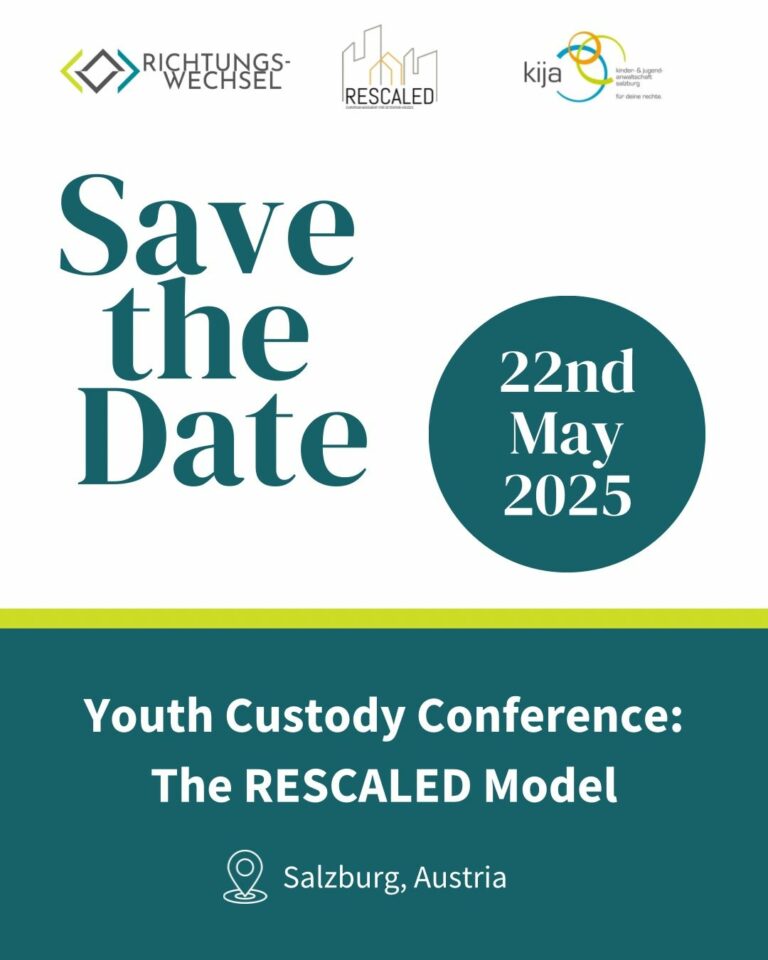

Event Goals
Initiate Impulses: Spark dialogue on innovative alternatives to youth detention in Austria and raise awareness of detention houses as a forward-thinking model.
Develop Sustainable Solutions: Collaborate with experts from academia and practice, policymakers, and individuals with lived experience to create concrete strategies for implementing small, community-integrated detention houses.
Strengthen International Networks: Connect stakeholders from justice, academia, and various practice fields to transfer European best practices into the Austrian context.
Build Public Support: Promote broader public understanding of the benefits of small detention houses and gain support for a resource-oriented approach to youth detention.
Event Program
The Youth Detention Conference 2025 offers a comprehensive program featuring top experts and innovative approaches to the future of youth justice.
The morning session will focus on the Austrian context. After welcome remarks from the organizers and key stakeholders, the RESCALED model will be introduced. This will be followed by a keynote lecture on the current situation in Austria and a panel discussion with experts from academia and practice.
The afternoon session will highlight international best practices. Experts and representatives from across Europe will present their successful approaches, including the aforementioned international organizations. After the closing remarks, participants will have the opportunity to personally engage with speakers and network with fellow attendees.
The conference provides a unique opportunity to exchange ideas with leading professionals, explore proven concepts, and advance forward-thinking approaches to youth detention.
Note: All expert presentations and discussions in the afternoon will be held in English, with live translation available throughout the event.
Registration and Ticket Purchase
Ticket Prices:
Standard Ticket: €35
Discounts:
Non-governmental organizations (NGOs) and individuals with limited budgets can apply for a discounted ticket.
Important Notice:
The ticket price is solely intended to cover catering costs and will be 100% allocated to food and beverages for participants.
Travel and Parking
Parking:
A parking garage is available at Schumacherstr. 14 (opening hours: 7:00 AM – 7:30 PM). At the entrance of the library, there is a card reader that allows access to the underground garage even after 7:30 PM.
In front of TriBühne, there are 2 disabled parking spaces and 9 general parking spaces.
Public Transport:
- Line 2 – Stop: Roseggerstraße or Esshaverstraße
- Line 4 and 24 – Stop: Esshaverstraße
- Line 1 and 7 – Stop: Schule Lehen
- Line 8 – Stop: Neue Mitte Lehen/Bücherei
Our partners
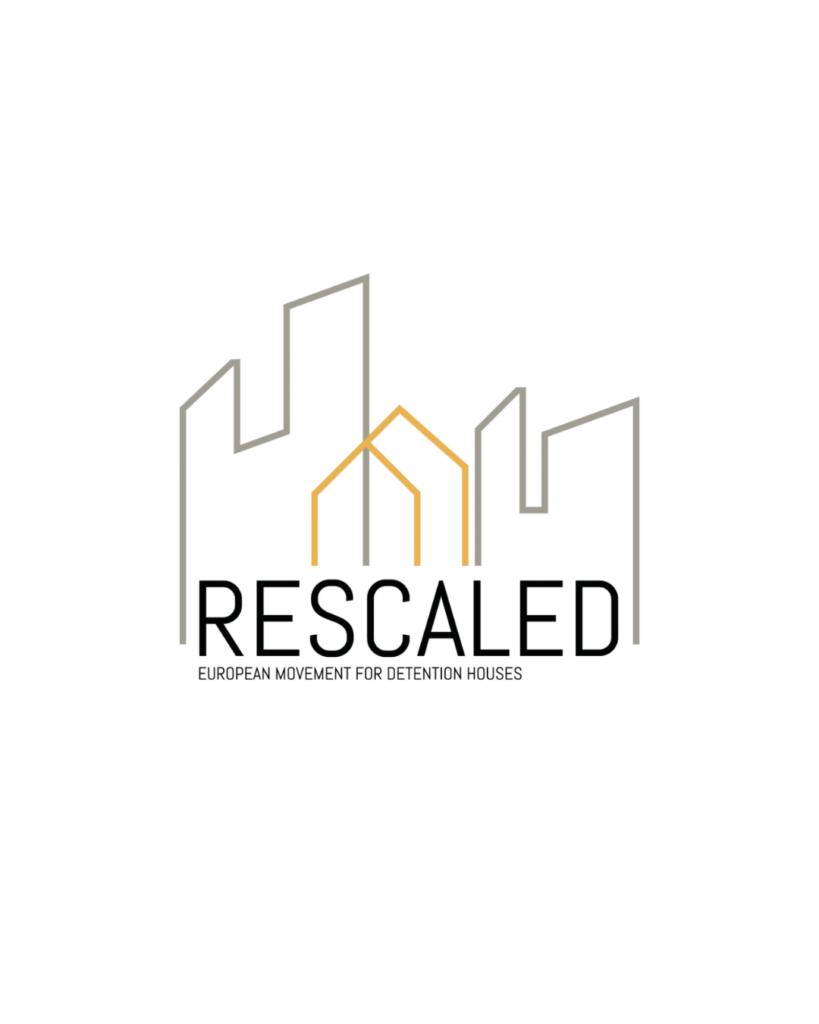
RESCALED
RESCALED advocates for the establishment of small-scale, differentiated, and community-integrated detention houses. These facilities aim to promote reintegration by fostering stronger relationships and integrating individuals into existing community structures.
RESCALED is based on three core principles:
Small Scale: Detention houses accommodate a maximum of 30 people, enabling constructive relationships and individualized support. Some small-scale examples house up to 50 people, but the focus remains on smaller institutions. In certain countries (see RESCALED inspirational practices), some detention houses have fewer than 10 places.
Differentiation: Detention houses are tailored to the specific needs of different groups, such as young people, elderly individuals, or persons with mental health conditions. This includes personalized and meaningful activities, education and employment opportunities, and appropriate security measures.
Community Integration: By engaging with local communities and services, detention houses foster a dynamic interaction between the facility and its surroundings.
The RESCALED movement is active in 17 European countries. The European office collaborates with policymakers, practitioners, journalists, and researchers to raise awareness, build networks, share knowledge, and support the implementation of detention houses.
For more information about RESCALED, visit: WHY – RESCALED
Kinder- und Jugendanwaltschaft Salzburg (Children and Youth Advocacy, Kija)
The Kinder- und Jugendanwaltschaft Salzburg (Children and Youth Advocacy, Kija) is a special administrative authority of the State of Salzburg that advocates for the rights and interests of children and young people up to the age of 21, and represents these rights publicly. The counseling, support, and any interventions for this target group are free of charge, anonymous, and confidential.
The foundation of their work is based on the UN Convention on the Rights of the Child and the Federal Constitutional Law on the Rights of Children. The specific tasks of this authority are defined in the Salzburg Child and Youth Welfare Act 2023 (§ 43 – § 45).
Each federal state in Austria has its own Children and Youth Advocacy.
For more information, visit: www.kija-sbg.at
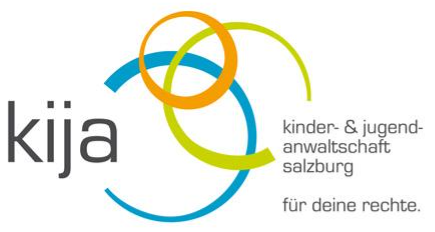
- Let’s Talk RESCALED (ENG)
📩 Questions about tickets, discounts, or the conference?
Feel free to contact us at:
Youth Custody Conference News: Updates and Insights
SAVE THE DATE
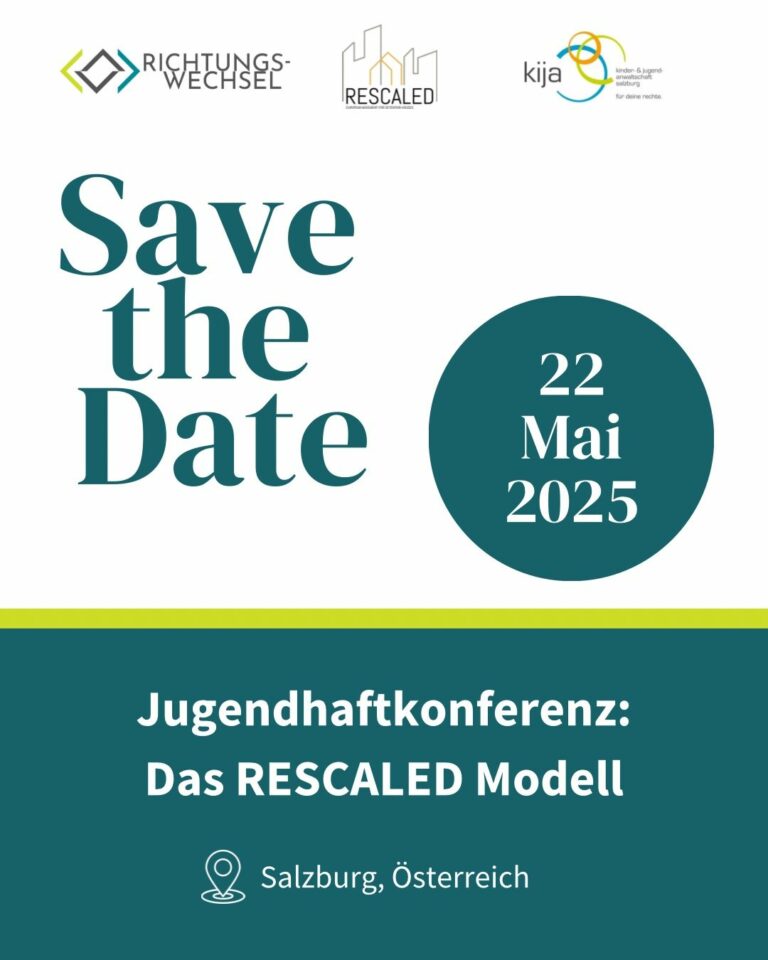

🗓️SAVE THE DATE🗓️
Youth Custody Conference – The RESCALED Model
🚨 Big News! 🚨
Mark your calendars – on May 22, 2025, we are hosting an international conference in Salzburg, Austria to discuss and promote benefits of Small-Scale Detention Houses in the Austrian correctional system, with a special focus on YOUTH.
These community-integrated detention houses, inspired by the RESCALED European movement, offer a social (re)integration-oriented alternative to traditional prisons. Countries like Germany have already demonstrated significantly lower recidivism rates through this approach, as seen in successful projects like Seehaus e.V. Leonberg or Leipzig’s youth programs.
👉 Why you should join:
Be part of a groundbreaking discussion on the future of youth justice and innovative detention solutions in Austria.
📌 Details to come:
Exact Location
Agenda
Speakers & Panelists
Stay tuned for more updates, but for now… SAVE THE DATE: May 22, 2025!
🙌 Join us in shaping a more humane and effective justice system.
Let’s make a change – together! 💬

